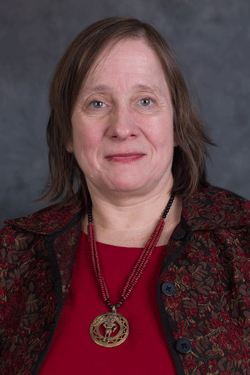 |
|
|
Linda Long-Bellil, PhD, JD |
A study initiated at UMass Medical School and led by Brandeis University highlights unmet needs and barriers to care for women with physical disabilities during pregnancy and childbirth, including clinicians’ knowledge and attitudes and accessibility to health care facilities and equipment. The researchers said clinicians need training to better care for pregnant women with physical disabilities.
Commonwealth Medicine’s Linda Long-Bellil, PhD, JD, assistant professor of family medicine & community health, co-authored the paper, published in the Disability and Health Journal. Monika Mitra, PhD, adjunct associate professor of family medicine & community health at UMMS and associate professor at Lurie Institute for Disability Policy at Brandeis University, served as lead author.
Researchers interviewed 25 women with physical disabilities across the United States who had a baby in the past 10 years. The women frequently reported that their clinicians had little knowledge or training, putting them at risk of receiving inaccurate or inappropriate medical advice; difficulties with inaccessible offices and equipment, such as examination tables and scales; and a lack of information on the effect of their disabilities on pregnancy.
“Just as public policy has evolved in the direction of encouraging individuals with disabilities to work, so it should support the aspiration of many women with disabilities to become parents. Clinicians should be provided the education necessary to prepare them to care for these women and both formal and informal supports should be made more widely available,” the researchers concluded.
Strategies should be developed for the dissemination of information on pregnancy and disability, including prenatal care, to women with physical disabilities who are pregnant or considering pregnancy, the researchers said.
The women interviewed for the study recommended that other women with disabilities who are pregnant or considering becoming pregnant choose a clinician with experience in providing prenatal care to women with physical disabilities, seek peer support from other mothers with disabilities, be assertive and take on the role of self-advocate.